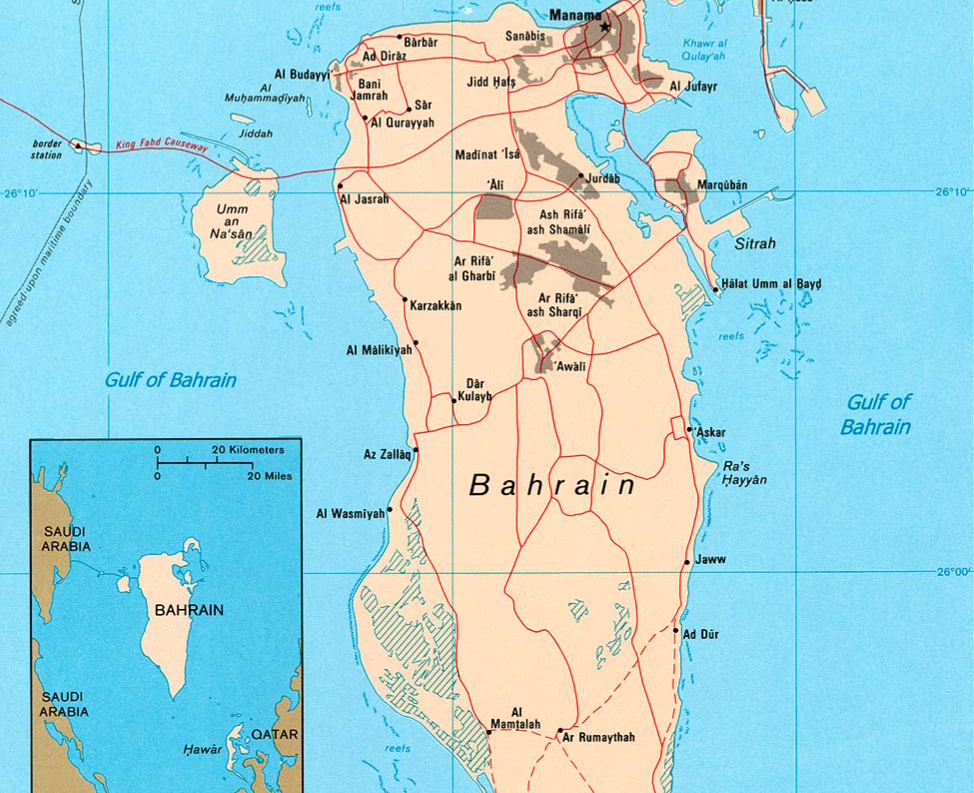Civilization
Bahrain: Bold Partner for Middle East Peace
Bahrain has lately proved, with several specific actions, that it stands for peace, not endless war in the Middle East.

“Bahrain was to prove the cornerstone for all our subsequent naval operations in the Persian Gulf. Pound for pound, Bahrain has been about the best ally we have had in recent times.”
In his memoir, Admiral William J. Crowe wrote these words about the small island monarchy. The eleventh Chairman of the Joint Chiefs of Staff commanded the Middle East Force from 1977 to 1978, based in Bahrain.
Those Naval Officers who have served in senior leadership positions fully understand the importance of Bahrain – a nation that enabled the U.S. to maintain a naval presence in the country, despite the oil embargo and even before a U.S. ambassador was confirmed.
Bahrain’s history with the United States is forged not only in its commitment to peace, but also its awareness of the main impediment to peace in the region, Iran.
Today, Bahrain once again proves it is a cornerstone, and indeed “about the best ally” of not only the United States but of its fellow Abraham Accords signatory, Israel, which faces one of the most pivotal challenges in its history as it prosecutes a necessary war to eradicate Hamas and deter other Iran-backed proxies.
It is the only publicly-named country in the Middle East participating in the multinational naval task force aimed at protecting commercial shipping in the Red Sea and the Gulf of Aden, Operation Prosperity Guardian, announced on December 18.
Together with the United Arab Emirates, Bahrain has gone further than many others in the region in condemning Hamas and calling for peace, but also in actively helping secure the release of Israelis held hostage by Hamas.
Shortly after a meek statement on October 7, Bahrain joined a follow-on statement by the UAE to explicitly condemn Hamas for its “dangerous escalation” and for its taking of hostages. This rhetoric, while obvious to audiences outside the region, has been rare from Arab states. The Arab League condemned Israel’s “violent and extremist policies” as impediments to peace in the region, while Qatar blamed Hamas’s October 7 attack entirely on Israel.
Bahrain has also consistently and publicly called for Hamas to release the hostages it took. Most recently, at the Manama Dialogue in November, Bahrain’s Crown Prince and Prime Minister Salman bin Hamad Al Khalifa again explicitly condemned Hamas and the October 7 attack. And while he did equivocate between the violence on that day and Israel’s ensuing military operation – both in the name of preventing the loss of innocent lives which, as he described, “in Islam and in Judaism…is a duty and moral responsibility” – he did go out of his way to call for the release of hostages.
Bahrain has also been a critical player, along with other monarchies in the Gulf, in not only helping release hostages but avoiding an even more calamitous response by Arab states to Israel.
It was reported, for example, that at the summit held in Saudi Arabia last month about the war, Saudi Arabia, together with UAE, Bahrain and Morocco – the latter three signatories of the Abraham Accords – prevented a regional boycott of Israel that would have included embargos of supplies to Israel and closing air space to Israeli planes.
Another crucial moment came at the same event, which was attended by the leaders of the Organization of Islamic Cooperation (OIC). Iran’s president attended, reportedly the first time in over a decade that an Iranian president visited Riyadh. He used the visit to appeal to attendees to help arm Palestinians and sever diplomatic ties. The OIC rejected the Iranian plan to fan the flames of war.
This robust effort by Bahrain, Saudi Arabia, and UAE to both help Israel and to block their neighbors’ punitive plans is a testament to the strong bonds between Israel and its Gulf partners, forged through the Abraham Accords.
It also has to do with their acute awareness of the common threat they face – to a greater degree than Israel’s older regional partners – from the Iranian regime that is behind Hamas. Their own future peace and prosperity has driven them to work with and support Israel in confronting the Iranian threat.
But the United States and Israel cannot rest on this alignment of vision. Much like Admiral Crowe did during the early days of U.S.-Bahrain relations, now is the time to build on this cooperation. With the Abraham Accords and the events of October 7 as the foundations, and the fifty nation (including Israel) International Maritime Exercise (IMX) and Cutlass Express (CE) joint exercises this past spring as the precedent, to realize a regional security architecture designed to meet the Iranian threats, especially focused on integrated air and missile defenses and maritime security.
The Gulf monarchies are often mentioned in the context of “day after” scenarios for Gaza, whenever that day may come, and no doubt their material support will be crucial. But even more important is the stability they provide from a shared vision of peace and prosperity that they share with both the United States and Israel, a vision they are working to realize on the ground in the region today.
This article was originally published by RealClearDefense and made available via RealClearWire.
-

 Accountability3 days ago
Accountability3 days agoWaste of the Day: Principal Bought Lobster with School Funds
-

 Constitution2 days ago
Constitution2 days agoTrump, Canada, and the Constitutional Problem Beneath the Bridge
-

 Executive1 day ago
Executive1 day agoHow Relaxed COVID-Era Rules Fueled Minnesota’s Biggest Scam
-

 Civilization6 hours ago
Civilization6 hours agoWhy Europe Shouldn’t Be Upset at Trump’s Venezuelan Actions
-

 Civilization1 day ago
Civilization1 day agoThe End of Purple States and Competitive Districts
-

 Christianity Today5 hours ago
Christianity Today5 hours agoSurprising Revival: Gen Z Men & Highly Educated Lead Return to Religion
-

 Civilization5 days ago
Civilization5 days agoThe devil is in the details
-

 Civilization4 days ago
Civilization4 days agoThe Conundrum of President Donald J. Trump











